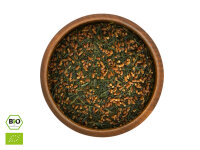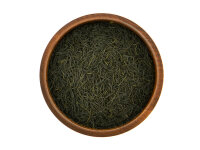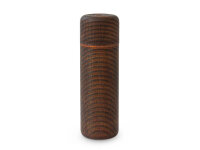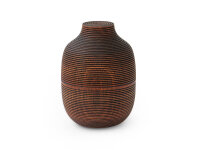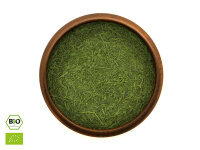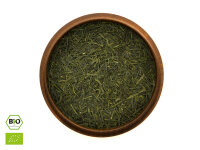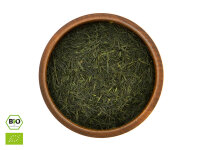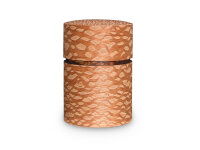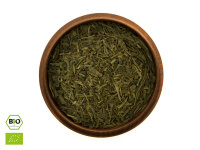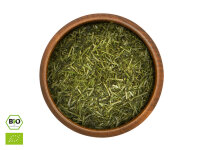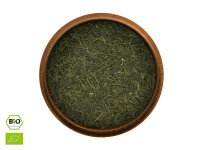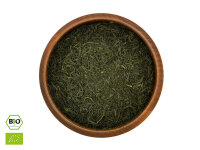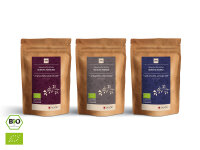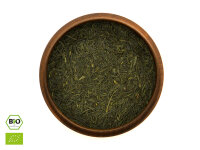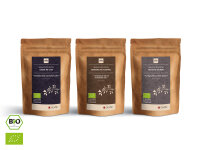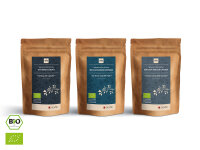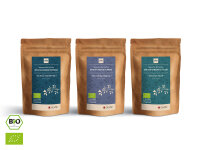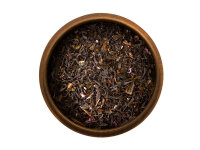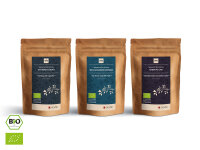"Hojicha Tsureai, Organic, Premium"
Bio Hojicha Tsureai
Premium Hojicha Tsureai is made from 90% Cultiva Yabukita tea leaves. Yabukita is a very popular cultivar in Japan, although it is quite delicate and organic farmers have to take great care of it. But it yields a lot of umami and is worth almost any effort. The cultivar for Tsureai is grown on the southern island of Kyushu, Japan, more precisely from the area around Kirishima in Kagoshima Prefecture. Kirishima is also the name of a mountain in the prefecture, a volcanic mountain. Volcanic soil, together with the subtropical climate, the many hours of sunshine, but also the fog, make up the special conditions that can produce such beautiful teas as this Hojicha. The tea fields are located - very idyllic - in the mountains of Kirishima, about 600 meters above sea level. Its delicate aromas are characterized by the roasting, which is done very gently in pans. Since it contains little caffeine, it is very popular as an evening tea. Perfectly it fits also to good food, both hot and as a cold drink.
How does the organic Hojicha Tsureaii
taste
The roasted aromas are particularly fine and concise. A nutty note with a slightly malty flavor rounds out the aroma variety. Despite the high catechin content, we have not been able to detect any bitterness, the tea tastes mild, slightly sweet and goes perfectly with both hearty and sweet dishes. To fully enjoy this fine Hojicha, you should ideally use soft, possibly filtered water. You can achieve an increase in taste by boiling the water in a genuine Japanese cast iron kettle - for the sake of your health, pay attention to the quality - and preparing the tea in a Japanese teapot made of clay or cast iron (Kyusu).
Organic Hojicha Tsureai and your health
The health effects of Hojicha are characterized by the richness of catechins and the absence of caffeine and acids. Thus, this tea can be judged as particularly friendly to the stomach. Hojicha is also very popular with older people and with our youngest. In Japan, even small children drink Hojicha, which certainly has something to do with the fact that it does not show bitterness even at high temperatures. It is well known that catechins - especially EGCG - have very good health effects. They are powerful antioxidants, but also have antitumor, antibacterial and antiviral effects. Since catechins act additively and even synergistically, as is now well known, green tea with its many different catechins is an ideal source of these health-givers. Some positive effects have been proven, others are strongly suspected. Beneficiaries may include the cardiovascular system, cholesterol levels, dental health, blood pressure, liver, eyes, prevention of cancer, the immune system and many other areas of health.
JP-BIO-005 Japanese Agriculture
Store: DE-BW-039-05768-BC
Note
Tested for radioactivity on export and import. Green tea from Japan please store in a cool, dark and dry place. So it retains its unique flavor. Suitable for multiple infusions. Also very tasty as a cold drink.

